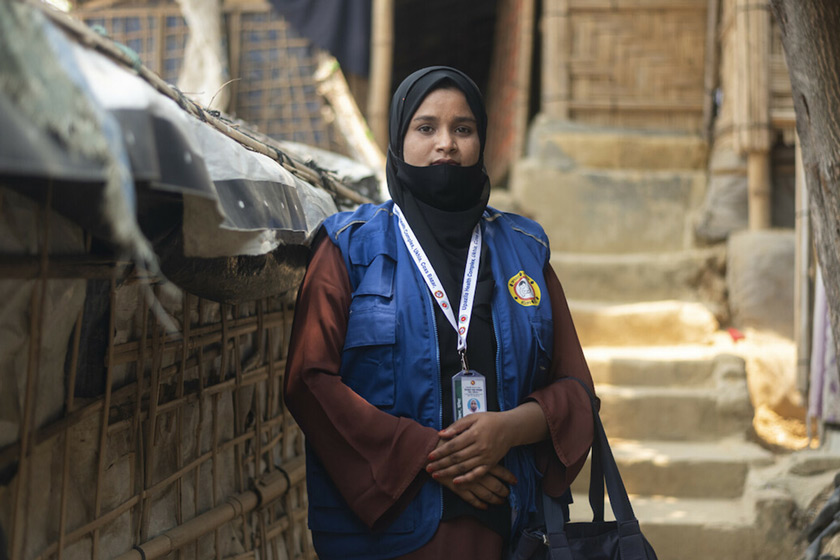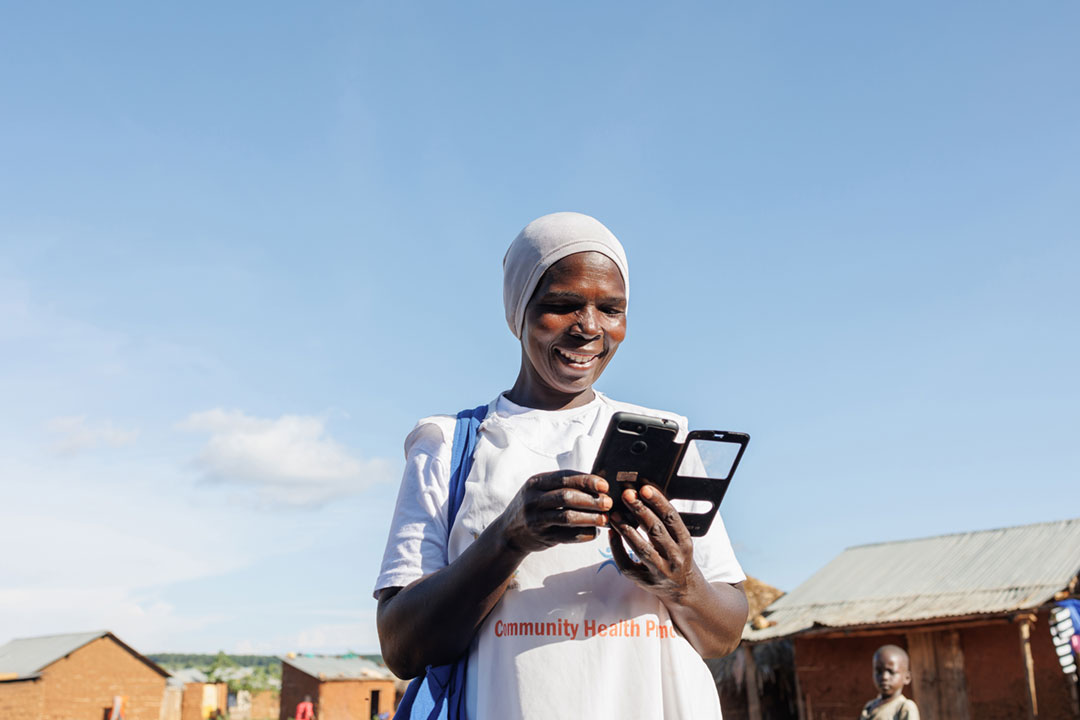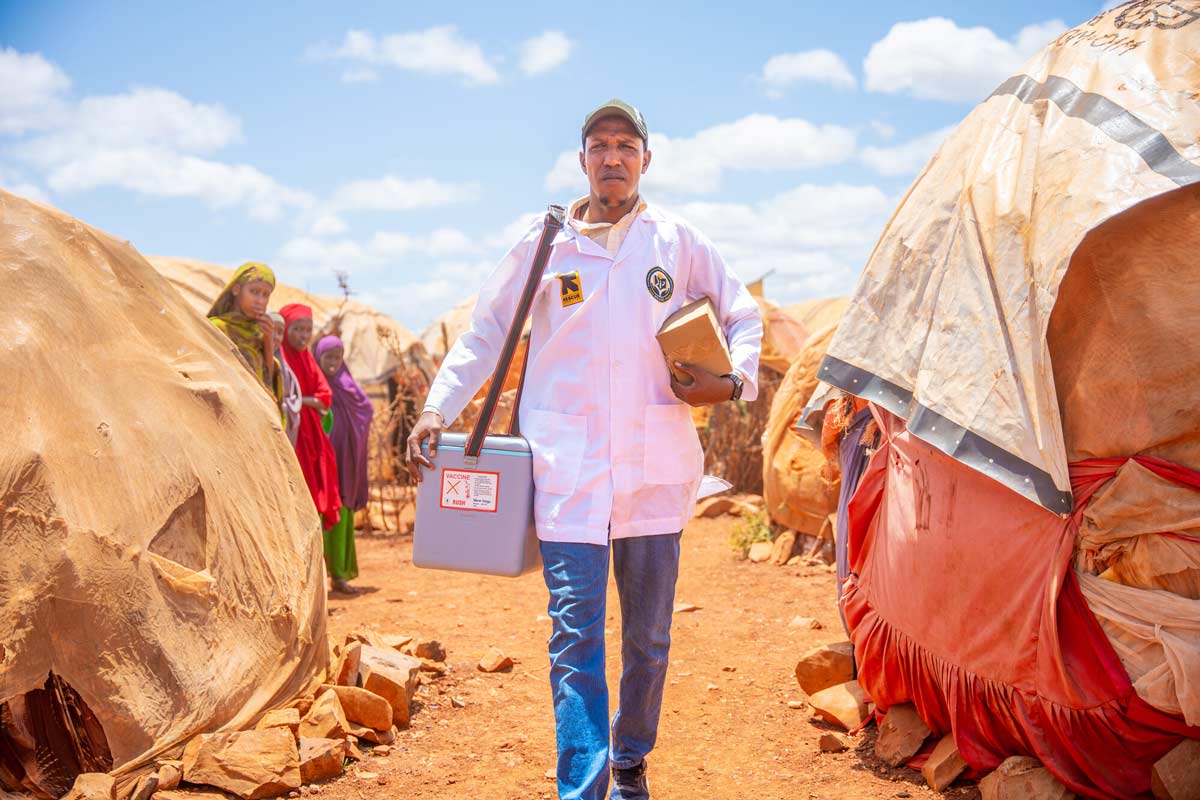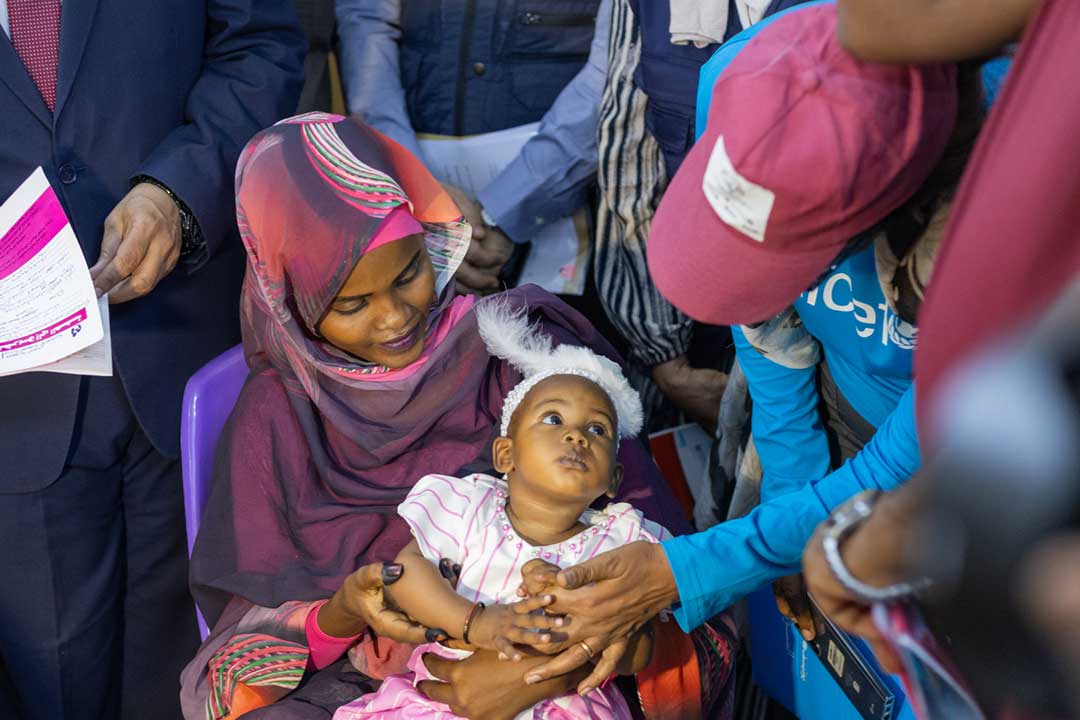Climate change and immunisation: time to widen the scope?
What impact will climate change have on immunisation? Much of the focus to date has been on the changing distribution of infectious diseases, but health workers in the Global South have highlighted a multitude of other climate-related challenges.
- 15 February 2024
- 7 min read
- by Ian Jones , Reda Sadki
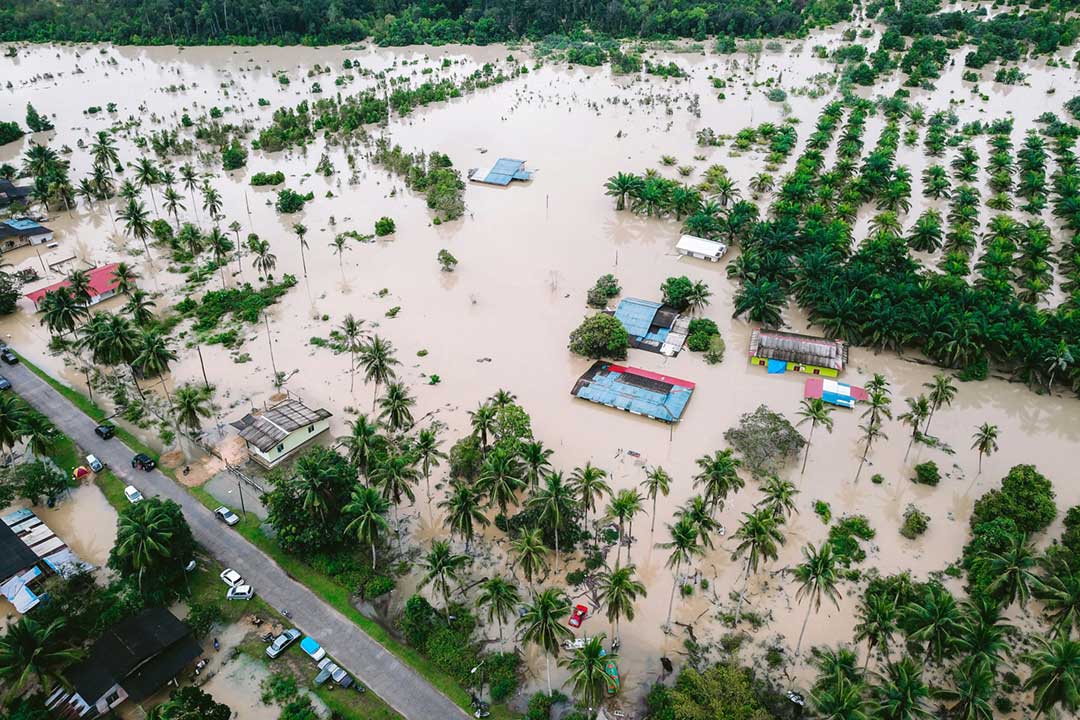
In the run-up to COP28, the Geneva Learning Foundation (TGLF) organised a unique event that gave health workers from the Global South an opportunity to share their experiences of local climate change and its impacts on the health and well-being of local populations.
More than 1,200 health workers from 68 countries shared their experiences. An analysis of these contributions was published at COP28.
Because of TGLF's extensive past work in the field of immunisation, many participants highlighted current or potential impacts on immunisation. In addition, multiple contributions touched upon the delivery and take-up of health services, issues that also apply to immunisation.
Resurgence of existing infectious diseases or the appearance of new pathogens were commonly cited as an impact of climate change (59% of respondents reported increased water-borne diseases and 51% noted changes to the incidence or distribution of vector-borne diseases). But these were far from the only issues raised. For example, extreme weather events, predicted to become more severe and more common because of climate change, can disrupt both the provision of services and the ability of people to access those services.
"In 2022, there was a massive flood in most states in Nigeria and Bayelsa state, a mostly riverine state, was affected. It was so bad that even cold chain equipment for immunisation was destroyed, and some was disconnected to avoid damage. This has a bad effect on immunisation sessions, and coverage for most antigens dropped to an all-time low."
– Dr Avuwa Joseph Oteri, Nigeria
"Kohistan is a remote district in the northeast of Khyber Pakhtunkhwa. Last year flash floods destroyed many health facilities and markets, and people had to travel a long distance to get medical facilities."
– Dr Akhtar Hussain, Pakistan
"In the facility where I work, floods always enter in when it rains. This affects services for two to three days to allow for the facility to be cleaned up. People are sick and suffer very much."
– Taphurother Muhonja Mutange, Kenya
"During the rainy periods, populations in landlocked areas faced challenges in accessing health care. They were often cut off from rural areas due to flooding, fallen trees obstructing pathways, or impassable roads caused by mud, making it difficult for vehicles to travel."
– Ziketo Beugre Arnaud, Côte d'Ivoire
In addition, flooding or drought can lead to displacement, breaking connections with previously used facilities.
"It has come to our attention that certain villages, particularly those in the Guiditi area, have been abandoned by residents who are in search of more fertile land. This has led them to move away from health facilities, which in turn affects the vaccination of their children."
– Ali Orchei Halliky, Chad
Following displacement, people may be exposed to pathogens they have not previously encountered or be housed in environments that favour the spread of pathogens, increasing the risk of infectious disease outbreaks. Furthermore, in crisis situations, when finding food, water and shelter is the highest priority, people may not place immunisation at the top of their list. Tracking the immunisation status of displaced children, and ensuring they are up to date with their vaccinations, is a major challenge for service providers.
The World Bank estimates that more than 200 million people could be displaced due to climate impacts by 2050. Other estimates put the figure at more than 1.2 billion. However, in many cases, migration is not linked to one single factor – according to the UN High Commission on Refugees (UNHCR), climate change may be acting as a 'threat multiplier' that magnifies the effects of other factors such as poverty, competition for resources and conflict.
Respondents also identified major social impacts of climate change and detrimental effects on mental health, for example. due to crop failures, economic hardship and loss of livelihoods. These factors are all likely to influence health-seeking behaviour, including demand for immunisation services.
An adaptive response
Climate effects are already driving changes in practice. Those organising polio campaigns, for example, have on occasion paused vaccination activities to support responses to environmental disasters.
"In October 2022, I went for polio outbreak support to a state where over six LGAs experienced flooding. Most of their houses, farms, and businesses were destroyed. Many of the people were affected by cholera due to water contamination and poor hygiene. The polio vaccination team and their supervisors were not to administer the vaccines but to be empathetic to the plight of the people by advocating for sandbags and food to the people rather than presenting them with polio vaccines in their time of need. Polio vaccination in such communities had to be postponed to later days when the situation has subsided, and the people were receptive to the teams due to their support at the time of their crisis."
– Ismaila Edego, Nigeria
In other cases, service providers have had to reschedule immunisation sessions, organising them early in the morning in response to extreme heat.
"With the rising temperatures, it became increasingly difficult for parents to bring their small children to vaccination sites. The relentless heat made it unbearable to venture outside, leaving them worried about their children's health and well-being.
Together, the parents and authorities brainstormed possible solutions to ensure that the children received their vaccinations while taking the extreme climate conditions into account. After careful consideration, they came up with a plan to adjust the session timings.
The sessions were rescheduled to early mornings or late evenings when the temperatures were relatively cooler. This adjustment allowed the parents and their children to attend the vaccination sessions without suffering from the scorching heat. The new schedule proved to be a tremendous success."
– Anonymous, India
Have you read?
Although the TGLF event focused on climate impacts, some respondents highlighted efforts they have taken to help communities face up to climate impacts and to build resilience to climate change, complementing government-led initiatives.
"The changing climate has brought about an increase in the prevalence of vector-borne diseases. Mosquitoes are now breeding and transmitting diseases like malaria more intensely. The community lacked proper health care facilities and resources to effectively combat these diseases, leading to a rise in illness and mortality rates. Mothers' means of livelihood were usually disrupted due to the time and effort spent in caring for their sick children, with a significant impact on household welfare.
Recognising the urgent need to address these climate-related health challenges, we engaged in community-led initiatives that included comprehensive health awareness campaigns to provide education on sanitation and hygiene practices, and education of residents about preventive measures against vector-borne diseases. By engaging our community health extension workers, we were able to organise regular health check-ups in the communities, focusing on early detection and treatment of illnesses.
Over time, these collective efforts began to yield positive results. The mothers in the communities witnessed improvements in income as they progressively began to spend less time pursuing children's health care challenges due to the adoption of preventive measures, thereby becoming more resilient to the changing climate.
This experience highlights the challenges faced by rural communities in Nigeria due to climate change. It demonstrates the importance of community engagement, sustainable practices, and support from relevant stakeholders in addressing the climate-health nexus and building resilience in the face of a changing climate."
– Dr Chinedu Anthony Iwu, Nigeria
Seeing the bigger picture
The experiences shared by these health workers provide unique insights into how climate change is affecting livelihoods, health and wellbeing of the people they serve. They illustrate how climate impacts interact with other environmental issues, affecting health and well-being through complex pathways of causation. They also illustrate how many communities live on the edge, experiencing a precarious and fragile existence that is highly sensitive to climate impacts.
In these situations, sustaining and increasing vaccine coverage is just one aspect of the wider challenges facing primary health care systems in climate-vulnerable countries. Immunisation services are not alone in being threatened by climate change, and solutions need to look beyond immunisation and adopt a more health systems-based approach, with strong community involvement.
While an understanding of how the epidemiology of infectious disease is being affected by climate is important, ensuring high vaccine coverage is central to keeping these diseases under control. It is therefore vital that attention is also given to very practical issues around climate impacts on the delivery and take-up of immunisation and other primary health care services – an area where the experience and intimate knowledge of local communities held by health workers can be an invaluable resource.
References
The Geneva Learning Foundation. (2023). On the frontline of climate change and health: A health worker eyewitness report (1.0). From community to planet: Health professionals on the frontlines of climate change, Online. The Geneva Learning Foundation
The Geneva Learning Foundation. (2023). Summary report. On the frontline of climate change and health: A health worker eyewitness report (1.0). From community to planet: Health professionals on the frontlines of climate change, Online. The Geneva Learning Foundation
